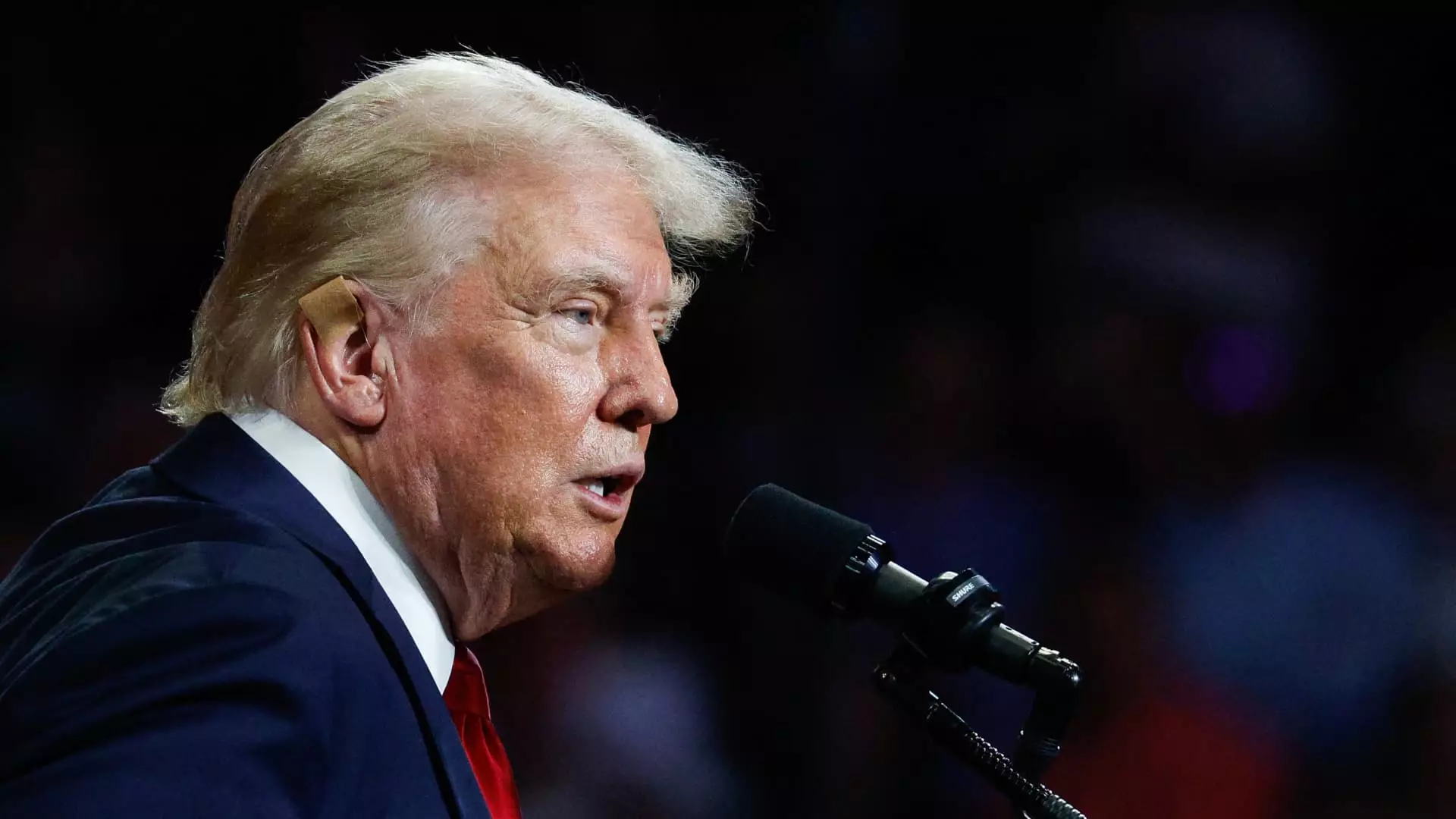Former President Donald Trump made headlines at the recent Bitcoin Conference in Nashville by discussing his administration’s potential policy on holding bitcoin. Unlike many crypto enthusiasts who encourage holding onto bitcoin through ups and downs, Trump’s proposal was less groundbreaking. He did not promise to establish an official U.S. bitcoin strategic reserve currency but rather suggested maintaining the current level of bitcoin holdings amassed from seized assets.
While Trump’s stance may align with the conservative approach to managing assets, third-party candidate Robert F. Kennedy Jr. took a more assertive stance. Kennedy proposed establishing a 4 million bitcoin strategic reserve, aiming to match the country’s gold reserves. This stark contrast between Trump and Kennedy highlights the missed opportunity to revolutionize the government’s approach to cryptocurrency regulation and valuation.
Creating a U.S. bitcoin reserve would require more than just an executive order. Legislative processes and congressional approval would be crucial steps in bringing such a reserve into existence. It’s evident that Trump’s proposal may fall short without adequate support from lawmakers and the broader political landscape. This raises questions about the feasibility and practicality of implementing such a significant financial initiative.
Sen. Lummis of Wyoming has shown interest in introducing legislation to support a strategic bitcoin reserve. This proposed reserve, funded by existing Treasury Department funds, aims to reduce the federal deficit and potentially strengthen the U.S. dollar against inflation. However, passing legislation of this nature would likely hinge on a Republican sweep in the upcoming elections, underscoring the political complexities surrounding the issue.
Establishing a national bitcoin reserve could provide a new level of legitimacy to the digital currency, especially in the wake of growing institutional interest and adoption. However, the process of building and sustaining such a reserve would present numerous challenges, including financial implications for taxpayers, regulatory hurdles, and the need for bipartisan consensus in a politically divided landscape.
The introduction of a U.S. bitcoin strategic reserve would undoubtedly have a significant impact on the cryptocurrency market, potentially driving up prices and triggering global responses from other countries. The strategic positioning of bitcoin as a national asset could reshape the dynamics of the digital currency landscape and further solidify its position as a valuable asset class in the eyes of institutional investors.
As the debate over establishing a U.S. bitcoin strategic reserve continues, the divergent views and approaches of political figures like Trump and Kennedy underscore the complexity of integrating cryptocurrency into traditional financial frameworks. While the concept of a national bitcoin reserve presents both opportunities and challenges, its realization would require robust legislative support, strategic planning, and a nuanced understanding of the evolving digital economy. Ultimately, the path towards a U.S. bitcoin strategic reserve remains uncertain, raising important questions about the future of cryptocurrency regulation and government involvement in the digital asset space.


Leave a Reply